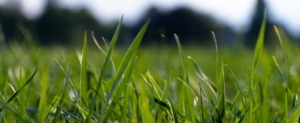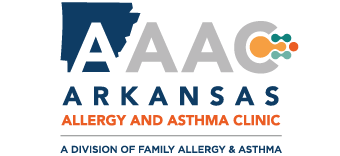Preparing for Grass Pollen Season

If you thought pollen season was drawing to a close, buckle up because it’s far from over. Pollen season comes in three waves; the first wave is tree pollen, the second wave is grass pollen, and the third wave is weed pollen. As spring starts to fade into summer, grass pollen is next in our lineup. Typically, grass pollen levels begin to rise in May, from late spring and last into the summer months. Levels usually peak early in the summer, but grass pollen can stick around well into August. Since grass pollens are so light and easily spread by wind, they are hard to avoid. Some common grass pollens in the Arkansas area include bermuda and johnson grasses. Some common allergy symptoms associated with grass pollens are…
- Sinus Congestion
- Runny Nose
- Postnasal Drip
- Sneezing
- Coughing
- Itchy or Watery Eyes
- Headache
- Fatigue
How to Combat Grass Pollen
The main way to combat grass pollen is to limit your exposure to grass. We have compiled a few tips on limiting your grass pollen exposure.
1. Check pollen counts
We encourage patients to check daily pollen counts so they can be aware of what pollen is high before spending time outdoors. This can help them dress and plan accordingly. Regional pollen counts can be found on the National Allergy Bureau website.
2. Cover your skin
When you are outside working in the yard, at a park, or hiking we recommend trying to cover up as much as possible. As the temperature rises, it becomes harder to wear things like long pants and long sleeves, but this added layer of protection helps reduce the amount of pollen that comes in direct contact with your skin. Use your best judgement and never put anything on that could cause you to overheat! Sunglasses and hats are also good for protection as they help keep pollen out of your eyes.
3. Masks while Mowing
Since Covid-19, we are no stranger to masks and how they work. Wearing one while mowing the grass will help reduce your exposure to grass pollen and other allergens. An N95 respirator mask is typically recommended but anything covering your mouth and nose will help. According to the CDC, N95 masks help to filter out 95% of airborne particulates, reducing the amount of pollen you encounter while mowing and doing other yard work.
4. Freshen Up
Changing into a fresh set of clothes after being outside will help reduce the pollen transferred from your clothes to your furniture. It may also be a good idea to shower before you sleep, so no pollen from your hair makes it into your bed.
5. Close doors and windows
As outside temperatures rise, we often want to open our windows and doors and let the warm breeze in. While it seems harmless, this allows pollen to enter your home and can worsen symptoms. Keeping your doors and windows closed allows your HVAC system to filter the air properly and can help reduce pollen in your home.
Treatment of Grass Allergies
Since pollens can be difficult to avoid, our allergists can recommend over-the-counter or prescription medications to help ease allergy symptoms. However, if medication is not enough to control allergies, our doctors may recommend immunotherapy like allergy shots. Immunotherapy is a treatment that builds up your body’s tolerance to bothersome allergens.
Be sure to keep these tips in mind when the wave of grass pollen begins. If you find your symptoms are not well controlled with the above methods, contact Arkansas Allergy & Asthma Clinic, our doctors can help find a treatment plan that works for you!
To schedule an appointment, call 501.227.5210, or request an appointment online.
